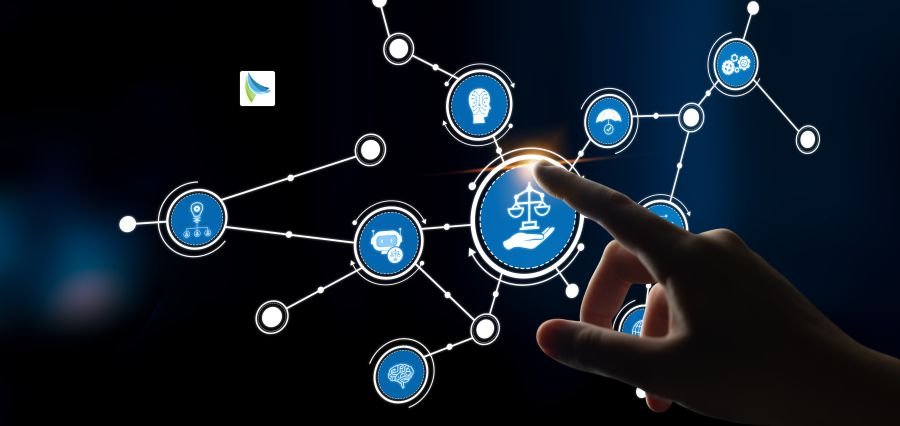When one mentions information technology, what mostly comes to mind is computers, coding, and technical labor. Although it is true that IT is highly technology-based but the current business environment is far more than that. Professionals with a technology background are now assumed to contribute to big picture decisions, business expansion, and work hand-in-hand with management teams. This is why a Bachelor of Information Technology is not only structured to enhance your technical skills, but also provides the foundation of solid business skills, which are important in virtually any industry.
As a student and business professional, it is important to know how these business skills can mold your career. Let us look at the key business-oriented skills that a BIT can bring to your toolkit.
Why Choose a Bachelor of Information Technology?
Majoring in Information Technology will set the path to a future in which technology and business intersect. The degree teaches you skills related to programming, networking, cybersecurity, and data analysis. Simultaneously, it trains the soft skills such as communication, leadership, analytical thinking, and adaptability.
This distinct balance renders graduates very appealing to employers. It also provides flexibility, which allows a number of career opportunities, including IT consultant, project manager, business analyst, systems architect, or even entrepreneur. To students seeking long-term development and mobility, the course serves as a gateway to industries such as finance, healthcare, and e-commerce education.
Business Skills Taught in a Bachelor of Information Technology
Strong Communication and Collaboration Skills
The majority of workplaces rely on collaboration and effective communication. A BIT requires students to complete several group projects and to do shared assignments. These activities develop essential communication skills, enabling students to report on technical solutions in simple language to managers, colleagues, and clients.
Graduates exhibit skills of breaking down complicated information to use practical language. They are taught to make presentations, streamlined with an AI presentation maker for dynamic visuals to train, and to facilitate discussions, which are relevant in bridging the technical aspect of the business to the non-technical decision-makers. This ability will allow an IT professional to be more approachable and an important person in any organizational environment.
Problem-Solving with a Business Angle
Both IT operations and business strategies are problem-oriented. The Bachelor of Information Technology degree not only imparts to students how to solve technical issues, but also takes into consideration how they may affect a company on a broader level.
As an example, the implementation of a new IT system does not mean just making sure that it functions. It also concerns the expectancy of whether the system minimizes expenditure, time saving, or whether it can be expanded in the future. Through developing this view, graduates develop the ability to think in a professional manner that is able to offer efficient, sustainable, and business solutions that are in line with the broader business objectives.
Project Management and Organization
In modern workspaces, IT experts take on large projects within scant time and budget. Project management for the introduction of new software or improving systems such as cybersecurity, or even developing apps depends entirely on effective management.
These were the skills developed in a student undertaking a BIT in terms of the academic assignments, group projects, and capstone tasks, as well as scheduling and distributing roles and dealing with unforeseen problems. This experience makes them feel at ease heading projects in actual organizations where they have to manage resources, schedules, and individuals to provide outputs.
Leadership and Team Development Potential
Leadership is not about a designation- it is about guiding people and making teams effective. Students in a BIT engage in team-based projects that assist them to build leadership skills like problem resolution, team coordination and decision-making.
These experiences demonstrate the fact that IT leadership does not just consist of technical knowledge. It requires time, human handling and motivation. With such qualities, graduates are more equipped to take on supervisory or managerial positions in the future, where they will be able to influence projects and get others to excel.
Flexibility and Adaptability
IT is rapidly changing, and so is business. Every day, processes are done in a patchwork of new programming languages, digital tools, and emerging platforms. Flexibility, therefore, is among the most powerful transferable skills acquired during this degree.
The BIT course trains students actively toward being receptive to new ideas and quick at adapting. From applying the tools to testing various platforms to adapting to new trends, students learn to be resilient, which is an invaluable quality in this ever-evolving world of business, where they are prepared to meet change head-on rather than being swamped by it.
Analytical and Critical Thinking
In the current data-driven economy, analysis is important in decision-making in businesses. IT professionals being trained are usually on the front line in this process. In completing a Bachelor of Information Technology, students receive a lot of practice in data interpretation, analysis, and the extraction of practical recommendations.
It is this competency that qualifies them as very important contributors during decision-making. They can provide recommendations as to whether a business is worth investing in an IT upgrade, moving to cloud solutions, or reorganizing its systems. It is not merely the issue of the analysis of information but also a matter of relating such understanding to the real-life strategies, which is of paramount importance to any business.
Why Business Skills Matter in IT?
Without business skills, IT graduates would almost always limit themselves to technical positions. However, companies expect otherwise; they want IT personnel to participate in strategic talks, assist in the optimization of operations, and actively contribute to growth.
It is this viewpoint that has led most Bachelor of Information Technology programs to emphasize business training alongside technical education. Thus, graduates can pair problem-solving abilities with input on the future direction of an organization. From digital transformation to customer-facing solutions, the IT graduate now has a much larger role thanks to business skills.
How Can These Skills Make You Stand Out?
The job market today is fiercely competitive. Candidates may have the technical skills sought by employers, but it is soft business skills that set certain graduates apart. This includes the ability to sell the idea, manage people, and make the link between IT solutions and business value.
This is the reason why the Bachelor of Information Technology graduates stand out. They are more versatile, collaborative, and willing to take the lead. Their career opportunities are not constrained to technical avenues but can traverse into consulting, management, or even executive opportunities over time. This versatility gives their skills a multiplicative effect that continues to pay dividends deep into the future.
Conclusion
A Bachelor of Information Technology not only imparts technical knowledge. It teaches business skills, including communication, collective leadership, adaptability, and analytical thinking, along with coding and systems knowledge. Armed with those skills, students are ready for employment and strategically poised to build a career leading to project management, strategic formulation, and innovations.
Read Also: The Role of a Business Management Degree in Modern Corporate Growth












